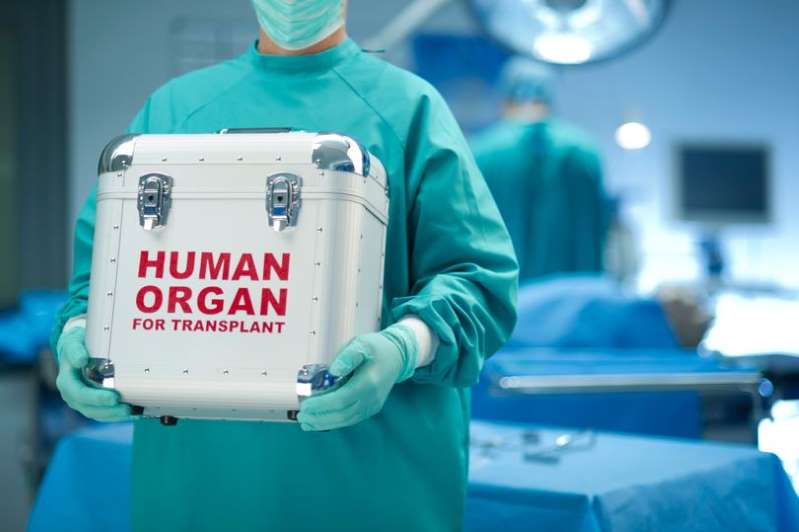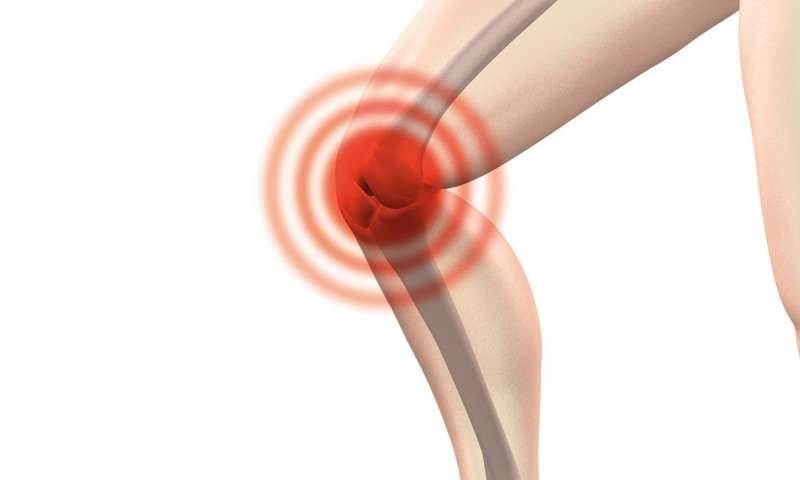Doctors jailed for illegally selling patient's organs on the black market in China










Doctors jailed for illegally selling patient's organs on the black market in China
A group of doctors harvested the organs of car crash victims and then sold them for cash, a report claims.
Six people, including four doctors, have been jailed in China having been caught up in the country's thriving organ blackmarket.
The convicted medics, all ranking high in state-run hospitals in the city of Bengpu, convinced the families of dead people to sign fake official organ-donating agreements.
They then removed their livers and kidneys inside a fake ambulance, according to an article in The Paper, a Shanghai-based news website.
The organs of 11 people, who died in traffic accidents or of cerebral hemorrhages, were then traded through hospitals for profit.
The defendants were reportedly convicted of damaging corpses and jailed between 10 and 28 months.
The report claims that the surgical operations were led by two of the medics, Huang Xinli and Lu Sen.
They had previously worked on organ procurement for their respective hospitals.

After the organs were removed in the ambulance, Huang - supervising doctor at the Drum Tower Hospital of Nanjing - would generally take them to various hospitals.
There they would be used in transplant operations.
The story came to light when Shi Xianglin claimed that his mum's liver and kidney had been 'donated' on the day of her death without her consent.
He realised something was amiss when he could not find his mum's name in the country's official organ donor register.
Shi reported the case to health and legal authorities.
The medical gang reportedly sent 200,000 yuan (£22,800) to one of Shi's cousins as compensation after the harvesting.
They are believed to have charged patients far more for the organs.
The case was ruled by the Huaiyuan County Court in July and appeals against the sentences have recently been rejected.
Huang was sentenced to two years and four months in prison, while Wang - another of the doctors - was handed two years.
Another doctor Yang Suxon, who was in charge of finding sources of organs and worked at People's Hospital of Huaiyuan, was jailed for two years and two months while Lu would spend one year behind bars.
Huang Chaoyang, a supplier of medical equipment, and Ou Yang, the owner of the fake ambulance, received 10 and 13 months of prison sentence respectively.
Accusations of organ harvesting have been levelled at Chinese doctors for decades.
Earlier this year Falun Gong practitioner Jennifer Zeng told the Mirror how she was only saved from having her organs harvested by a chance comment to a guard while she was in detention.
Former surgeon Enver Tothi, who now drives an Uber in London, told us how he was forced to remove slaughtered prisoner's organs.
Reference: Mirroer: Milo Boyd:Experimental growth factor shows promise for treating knee osteoarthritis











Experimental growth factor shows promise for treating knee osteoarthritis
More than 10 percent of Americans over age 60 experience knee pain related to osteoarthritis, the most common disease of the knee joint. Osteoarthritis of the knee causes pain, activity limitation, physical disability, reduced health-related quality of life and excess mortality compared with the general population. The pain is usually treated with over-the-counter pain relievers, anti-inflammatory drugs, local steroid injections and sometimes surgery. There are currently no drugs approved to treat the underlying cause of the condition, which results from the breakdown of joint cartilage covering the long bones due to increasing age, injury/overuse, obesity, genetics and/or local inflammation. A new experimental growth factor therapy, however, appears to prevent a worsening of osteoarthritis by increasing the thickness of cartilage in the knee joint and preventing further loss, according to results from an early clinical trial that were published today in the Journal of the American Medical Association.

Patients treated with the higher dose of sprifermin, however, did not experience any significant improvement in their arthritis symptoms—including pain, stiffness, and physical dysfunction like walking difficulties—compared to those given the lower dose or those given placebo injections.
"While the increase in cartilage thickness is a positive sign, we do not know at this point whether it has any clinical significance," said study lead investigator Marc Hochberg, MD, MPH a Professor of Medicine at UMSOM. "It is not known whether those who experience increased cartilage thickness over time will be able to avoid or delay knee replacement surgery."
While injections were stopped after 18 months, the analyses showed that the difference between groups that received the higher dose of sprifermin and placebo persisted out to three years. The study was designed to continue for a total of five years and future analyses of the entire trial dataset are planned.
In a more recent post-hoc analysis of the data, Dr. Hochberg and his colleagues evaluated a subgroup of osteoarthritis patients with severe pain and narrow joint space in their knee who were at higher risk of disease progression; they found that those in the group who received sprifermin 100μg every six months experienced significant improvements in their arthritis symptoms 18 months after their last injection compared to those who received placebo injections. "These results support further investigation of sprifermin as a potential osteoarthritis treatment for both structure modification and symptom relief for higher-risk patient populations," Dr. Hochberg said. These results were presented in June at the European Congress of Rheumatology's annual meeting,
"Finding an effective therapy that can treat the cause of common chronic pain conditions like osteoarthritis would be a ground-breaking achievement," said E. Albert Reece, MD, Ph.D., MBA, Executive Vice President for Medical Affairs, UM Baltimore, and the John Z. and Akiko K. Bowers Distinguished Professor and Dean, University of Maryland School of Medicine. "I'm proud that our scientists are helping to move the knowledge forward on the effectiveness of new therapies to replace worn cartilage in the joints. This is very important work, and more answers are certainly needed."
Side effects associated with the use of sprifermin were mostly mild or moderate and consisted mainly of acute inflammatory reactions (pain, redness, swelling) at the site of the injections. The study was funded by Merck KGaA, manufacturer of sprifermin, located in Darmstadt, Germany.
Reference by University of Maryland School of Medicine
Billionaire Trump donors contract Covid-19 after downplaying risks










Billionaire Trump donors contract Covid-19 after downplaying risks
Two of Donald Trump’s billionaire donors have contracted Covid-19 months after downplaying the risk of the disease to their employees.
Richard and Liz Uihlein, conservative megadonors who own the Uline packaging company based in Wisconsin and are two of the Republican party’s most significant financial backers, told employees on Wednesday that they had contracted the disease after being “around people with Covid”.
Related: Was Donald Trump's White House watch party a super-spreader event?
Liz Uihlein, 75, said in the message to employees: “After these long months, I thought we’d never get it. Well, Trump got it,” she said.
The news was first reported by Patch.com, a local news website, and was confirmed by the Guardian.
It is not clear where the Uihleins might have been infected.
A spokesman for the family could not immediately respond to questions about whether the couple attended a White House election night party last week for the president’s financial donors. At that event at least five individuals were infected, including Mark Meadows, the White House chief of staff. Brian Jack, the White House political director, and Healy Baumgardner, a former White House aide, have also reportedly tested positive following attendance at the party.
The White House did not immediately respond to a request for comment.

The Guardian tried to reach the Uihleins at their home but a person who answered the phone at the residence ended the call after a reporter identified herself.
In a statement, family spokesman William Broydrick said the company would not be disclosing any information about personnel who tested positive for the disease.
“The health and safety of Uline employees continues to be our top priority. Uline has instituted numerous changes to normal operating policies to respond to COVID-19 with health and safety in mind,” the statement said. “As we are made aware of positive cases among Uline personnel, we continue to promptly notify others who may be exposed to the virus, so the proper protocols can be quickly put into place.”
But the company has been criticized in the past for not taking the pandemic seriously enough. In a brief interview in April, Liz Uihlein – who with her husband has been called the “powerful conservative couple you’ve never heard of” – said the pandemic had been “overhyped”.
“I don’t wish anybody ill will. You know I don’t wish that, but I think it hurts certain ages in certain places and largely in a lot of parts of the world. In the country it’s not as rampant as the press would have you make it,” she told the Guardian at the time.
Employees who spoke to the Guardian in April complained the company had adopted lax safety practices and had initially discouraged employees from working from home. Uline rejected those suggestions, saying the company had adopted precautions for employees.
Since then, cases in the political battleground state of Wisconsin, which flipped from Republican to Democrat in the 2020 election and helped president-elect Joe Biden clinch the White House, have soared.
Health officials in the state warned on Wednesday that the situation in Wisconsin was becoming “increasingly dire”, according to local reports. Wisconsin reported more than 7,000 new cases on Wednesday and 60 deaths.
The Uihleins have an estimated net worth of about $4bn. Liz Uihlein said in her message to employees that she would be returning to the office on 19 November, according to an article on Patch.com. Richard Uihlein is listed by the Center for Responsive Politics, the campaign watchdog group, as the fifth largest private donor to outside spending groups in the 2020 election cycle, having donated about $62m to conservative anti-tax and anti-labor groups like the Club for Growth.
Articles - Most Read
- Home
- LIVER DIS-EASE AND GALL BLADDER DIS-EASE
- Contacts
- African Wholistics - Medicines, Machines and Ignorance
- African Wholistics -The Overlooked Revolution
- African Holistics - Seduced by Ignorance and Research
- The Children of the Sun-3
- Kidney Stones-African Holistic Health
- The Serpent and the RainBow-The Jaguar - 2
- PART ONE: DIS-EASE TREATMENT AND HEALTH-3
- 'Tortured' and shackled pupils freed from Nigerian Islamic school
- King Leopold's Ghost - Introduction
- PART ONE: DIS-EASE TREATMENT AND HEALTH-4
- PART ONE: DIS-EASE TREATMENT AND HEALTH-2
- PART ONE: DIS-EASE TREATMENT AND HEALTH-5
- African Wholistics - Medicine
- Menopause
- The Black Pharaohs Nubian Pharaohs of Ancient Egypt
- The Mystery System
- PART ONE: DIS-EASE TREATMENT AND HEALTH-6
Who's On Line?
We have 336 guests and no members online
Ad Agency Remote
Articles - Latest
- The Male G Spot Is Real—and It's the Secret to an Unbelievable Orgasm
- Herbs for Parasitic Infections
- Vaginal Care - From Pubes to Lubes: 8 Ways to Keep Your Vagina Happy
- 5 Negative Side Effects Of Anal Sex
- Your Herbs and Spices Might Contain Arsenic, Cadmium, and Lead
- Struggling COVID-19 Vaccines From AstraZeneca, BioNTech/Pfizer, Moderna Cut Incidence Of Arterial Thromboses That Cause Heart Attacks, Strokes, British Study Shows
- Cartilage comfort - Natural Solutions
- Stop Overthinking Now: 18 Ways to Control Your Mind Again
- Groundbreaking method profiles gene activity in the living brain
- Top 5 health benefits of quinoa
- Chromolaena odorata - Jackanna Bush
- Quickly Drain You Lymph System Using Theses Simple Techniques to Boost Immunity and Remove Toxins
- Doctors from Nigeria 'facing exploitation' in UK
- Amaranth, callaloo, bayam, chauli
- 9 Impressive Benefits of Horsetail
- Collagen The Age-Defying Secret Of The Stars + Popular Products in 2025
- Sarcopenia With Aging
- How to Travel as a Senior (20 Simple Tips)
- Everything you need to know about mangosteen


